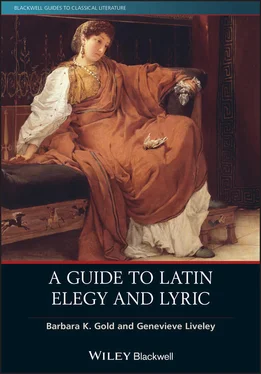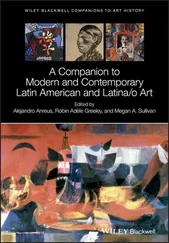Other than this generally light-hearted approach to politics, Ovid’s elegiac poetry does not have very much to say about Augustus himself. No doubt inspired by the genealogical connections invented between Augustus, Aeneas, and Venus as part of the princeps’ personal re-branding (as celebrated by Vergil’s Aeneid and the many monuments and coins promoting this mythology that Augustus issued during his reign), Ovid does have some fun with the idea that Augustus is the great-grandson of the goddess of Venus. He speculates on how the history of Rome might have played out if Venus had had an abortion, meaning that Aeneas and the rest of the Julian family had never been born ( Amores 2.14.17–18) – an idea that is likely to have seemed no less shocking (and politically charged) to Ovid’s contemporary Augustan audiences than it does today. Ovid also enjoys pointing out that the supposed family connection between the Julian clan and their eponymous ancestor, Aeneas’ son Iulus Ascanius, makes Cupid one of Augustus’ kinsmen. He begs the mischievously cruel god to copy the good example of his “cousin” or cognati Augustus Caesar ( Amores 1.2.51) and to show the poet mercy as he parades him through the streets of Rome in a parody of a military triumph. The tone of this poem is largely playful, but there is a provocative note in the final elegiac couplet, where Ovid sarcastically reminds Cupid that Augustus is famous for showing mercy to those he has vanquished (1.2.52). As Propertius has already reminded us, in those many victories fought and won in the civil wars, the future Augustus was actually infamous for his cruelty and the lack of clemency or mercy he showed to those he had defeated. Similarly, there is also a politically informed intertextual allusion to Propertius at play in Amores 3.12.15–16, where Ovid claims that he had once briefly considered writing epic poetry about Thebes, about Troy, or about Caesar Augustus but that none of these lofty topics had sufficiently inspired his inspiration ( ingenium ). The one person and the one topic that ever inspired him to write poetry was a mere girl – a puella he calls “Corinna.” The insult to Augustus is casually presented here, but in the context of Augustus’ attempts in this period to reform public morals and restore “old-fashioned” codes of sexual conduct to Rome, it is deliberately provocative (see Barchiesi 1997).
Cultural, Political, and Historical Contexts for Elegy and Lyric: Puellae
Augustus had ambitions not only to control the state and the public lives of Roman citizens, he also had ambitions to control their private lives. The Augustan marriage legislation, or leges Iuliae , first introduced around 18 bce and re-introduced in a lighter form as the lex Papia Poppaea in 9 CE, was therefore one of the cornerstones of Augustus’ principate. Made up of two laws (the lex Iulia de maritandis ordinibus and the lex Iulia de adulteriis coercendis ), this legislation package apparently sought to promote marriage and the legitimate procreation of children. At the same time it also made adultery a criminal offence against the state – a serious crime like murder or treason. The laws were highly controversial, and several contemporary poets have comments to make about this unprecedented intrusion of the state into private affairs. Horace refers to the laws on a number of occasions (in fact, it is his Carmen Saeculare which helps historians to date the legislation to around 18 bce) but his point of view on the topic seems to waver. In Odes 3.24 he is found calling upon Augustus to rein-in the decadent and immoral behavior of Rome’s citizens, before pointing out that state intervention probably isn’t the best way to tackle this social problem (35–6). But in Odes 4.15 (written after the legislation has been passed) we find Horace praising Augustus for his intervention and for ushering in a return to good old-fashioned family values (4.15.10–12). For the elegiac poets, though, the new marriage and adultery laws were definitely unpopular: Propertius has one of his characters (the lena ) suggest that puellae should “smash the damnable laws of chastity” ( frange et damnosae iura pudicitiae , 4.5.28); Ovid in his Amores (2.2) insists that his own adulterous affairs are no real crime; and in his elegiac Ars Amatoria he offers what might well be read as a “guide to the art of adultery.”
The Augustan law on marriage set down a system of incentives and penalties ( praemia et poenae ) for marriage between citizens of all classes. Widows were expected to remarry within a year of their husband’s death, and divorcees expected to remarry within six months of their divorce. Unmarried men and women were penalized financially and unable to inherit. And, in a particularly petty ruling, unmarried men over the age of twenty-five and unmarried women over the age of twenty were banned from attending certain public entertainments. The law also introduced a number of prohibitions, most notably forbidding members of the senatorial order to marry certain kinds of people – including freedmen, freedwomen, actors, actresses, and anyone whose father or mother was an actor or actress. The marriage law also prohibited any freeborn person, including senators, from marrying those whose status was deemed infamia : that is, prostitutes, pimps, procuresses, and any persons publicly prosecuted for adultery. Meanwhile, new adultery laws dealt with extra- marital relations. Under the lex Iulia de adulteriis coercendis , adultery, which had previously been dealt with as a private concern within and between families, was now made subject to public scrutiny and state involvement. Formally criminalizing adultery for the first time in Rome’s history, this law established severe penalties for those caught in the act (on the marriage and adultery laws see especially Gardner 1986; Treggiari 1991; Dixon 1992; Liveley and Shaw 2020).
These political moves by Augustus provide an important backdrop for the ways in which the women of elegy in particular are represented. The elegiac puella is probably best understood as a fictional construct (see Alison Sharrock 1991; and Chapters 9and 10in this volume). Catullus’ Lesbia, Tibullus’ Delia, Propertius’ Cynthia, and Ovid’s Corinna all conform to an elegiac stereotype: they are beautiful but vain, clever but calculating, jealous but unfaithful, passionate but cruel. Yet the most significant characteristic of the stereotypical puella is the fact that she does not belong to the group of respectable, marriageable, women as defined by Augustus’ new marriage laws. Whether we are supposed to regard the women in Latin elegy as married women engaging in adulterous affairs with their poet-lovers (as appears to be the case with Catullus and his married lover, Lesbia) or whether we are supposed to see them as high-class courtesans or meretrices (as suggested by the occasional appearance of the lena – the procuress or “madam” – in Tibullus 2.6, Ovid Amores 1.8, and Propertius 4.5), these women are definitively not “marriage material.” Indeed, that seems to be the point of the puella . She is for recreation and pleasure, not for procreation and marriage – as Propertius 2.7 (which appears to refer directly to Augustus’ marriage laws) makes clear. As such, the decision to focus upon the puella as an object of love and desire, to make her the foundation upon which the elegiac poet builds his poetry and his life, represents an unconventional and even radical move.
In this context, it is important to remember that Roman culture does not equate erotic or romantic love with marriage or with modern, predominantly western, notions of “living happily ever after.” As Paul Allen Miller reminds us, in the Roman world it appears that “Love … was a regrettable extravagance to be tolerated in young men. They could have their flings with a courtesan or meretrix , provided they did not despoil the family fortune, but were then expected to settle down in a traditional arranged marriage and pursue a career in law, the military, or politics” (Miller 2002: 3–4). These are the kinds of love affair we find in Roman comedy, and even in Roman lyric, while in Roman epic we find that those who do put love above duty tend to come to a bad end themselves and to threaten the safety of the Roman state (Vergil’s Aeneas and Dido, for example). In choosing to celebrate their love for a puella over all else, then, the Roman elegists place their lifestyle choices in flagrant opposition to Augustus’ attempts at social and moral reform.
Читать дальше












